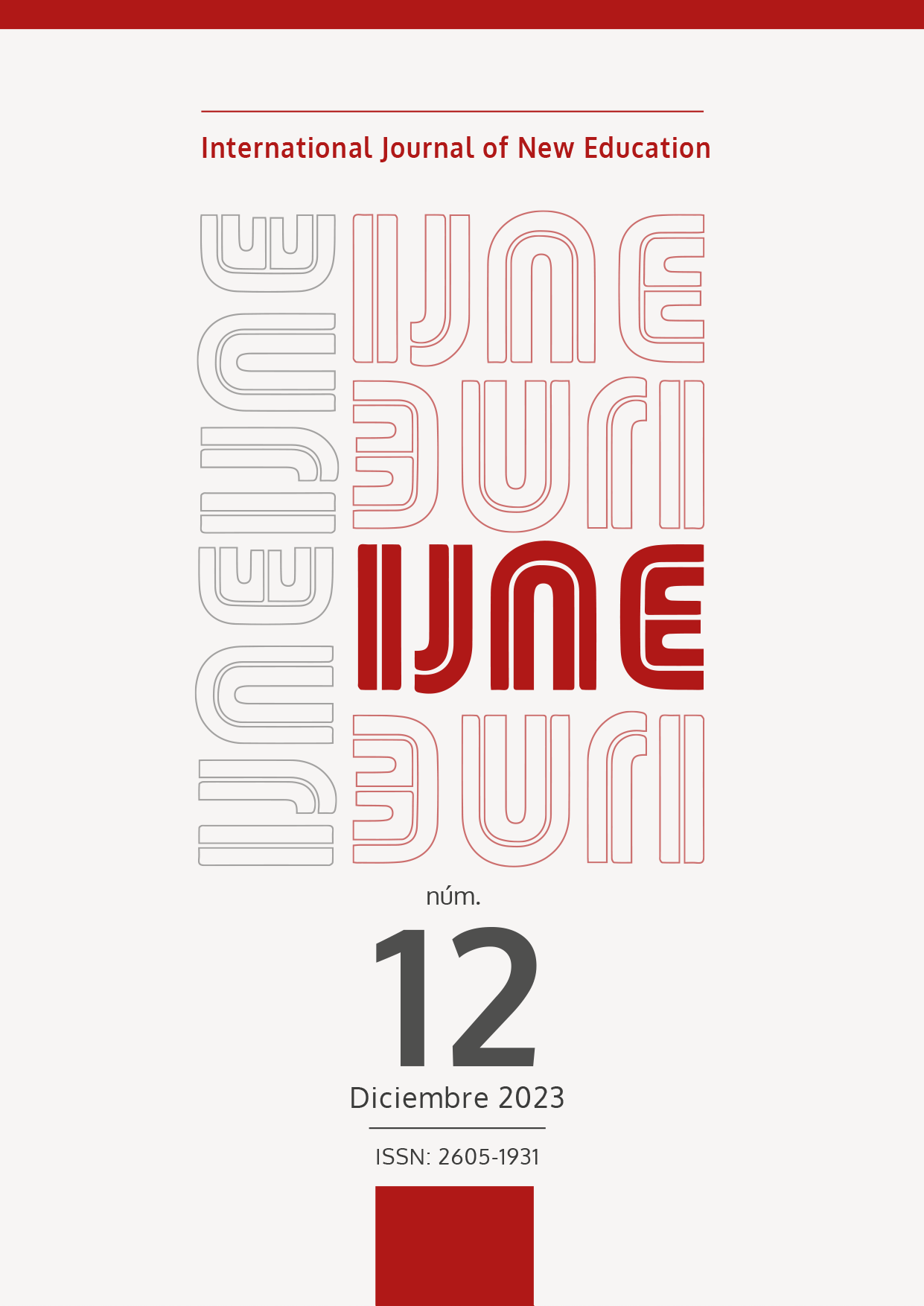Building a sense of life and social responsibility.
Encounters and misunderstandings in university education
DOI:
https://doi.org/10.24310/ijne.12.2023.17887Keywords:
Adult education, Social Responsibility, Social life, Life quality, IdentityAbstract
The meaning of life and social responsibility are transcendental in coexisting with humanity since they enable experiences endowed with consciousness for understanding and making decisions about our existence. For young university students, it represents a decisive process in their lives because it is a stage of multiple physical, emotional, intellectual and social changes.
The purpose of this research is to analyze how young university students build their meaning of life in a public university in Mexico and, at the same time, identify their capacities and potentials that allow them to contribute to the strengthening of their life projects for a greater awareness of himself and the necessary responsibility with otherness.
The study uses a mixed methodology, with a hermeneutic-phenomenological approach and a psycho-sociological perspective focused on the perception experiences that students have of themselves and other people who are significant in their lives. The research uses the LOGOTEST and PIL questionnaires in addition to semi-structured interviews.
The central question referred to: What meanings do students provide to their existences, and how do they use them to understand the meaning and life project they build within their life and educational trajectories?
The research concluded that students report severe difficulties in constructing personal identity and recognizing and accepting their potential, with an apparent detriment to their self-esteem. It makes it challenging to build meaning in life that allows the deep development of subjectivity and intersubjectivity. Thus, students build meaning in life based on establishing family ties that allow them to advance in their existence, have clear goals and purposes for professional development and position themselves in the labor market.
Downloads
Metrics
Publication Facts
Reviewer profiles N/A
Author statements
Indexed in
-
—
- Academic society
- N/A
- Publisher
- Universidad de Málaga
References
Alarbid, S. (2008). El hombre de hoy desde el concepto de existencia de Soren Kierkegaard. Revista de Artes y Humanidades UNICA, 9(22), 117-131.
Berger, P. y Luckman, T. (2003). La construcción social de la realidad. Buenos Aires: Amorrortu.
Brand, J. P. (2013). La felicidad como categoría de exclusión. Foro multidisciplinario de la Universidad Intercontinental, (27), 5-9.
Cantero, D. (2014). Teoría fundamentada y Atlas.ti: Recursos metodológicos para la investigación educativa. Revista Electrónica de Investigación Educativa, 16(1), 105-122.
Foucault, M (1987). Historia de la sexualidad. 3. La inquietud de sí. Ciudad de México. Siglo veintiuno editores.
Frankl, V. E. (2007). El hombre en busca del sentido. Barcelona: Herder.
Frankl, V. E. (2013). El hombre en busca del sentido último. Barcelona: Paidós.
Grondin, J. (2005). Del sentido de la vida. Barcelona: Herder.
Hernández, R., Fernández, C., Baptista, P. (2010). Metodología de la investigación (5ta. ed.). Ciudad de México: McGraw Hill.
Marcel, G. (1987). Aproximación al misterio del ser. Posición y aproximaciones concretas al misterio ontológico. Ediciones Encuentro.
Noblejas de la Flor, M.A. (1999). Estructura factorial del test PIL y Logo-test. NOUS: Boletín de Logoterapia y Análisis Existencial. 1(3), 67-84.
Noblejas, M.A (2000). Palabras para una vida con sentido. Bilbao: Desclée de Brouwer.
Nussbaum, M. (2012) Crear capacidades. Propuestas para el desarrollo humano. Barcelona: Paidós.
Nussbaum, M. (2005). El cultivo de la humanidad. Una defensa clásica de la reforma en la educación liberal. Barcelona: Paidós Básica.
Rage, E., Tena, S. A, y Derbez, A. (2001). Confiabilidad y validez de tres instrumentos acerca del sentido de vida. Enseñanza e investigación en psicología, (1), 63-71.
Ricoeur, P. (1996). Sí mismo como otro. Ciudad de México: Ed. Siglo Veintiuno.
Ricoeur, P. (1988). L’identité narrativ. Revue Esprit, (1), 7-8.
Risco, A., Moreno, M. y Urchaga, J. (2015). Logoterapia y psicología positiva para mejorar el sentido vital en jóvenes. Rev. Psicol. Trujillo, 17(1)55-65.
Seligman, M. (2002). La auténtica felicidad. Madrid: Ediciones B.
Sánchez, A; Risco, A, y Urchaga, J. D. (2011). Propiedades psicométricas de un instrumento (Logotest) para evaluar el sentido de la vida. International Journal of Developmental and Educational Psychology, 5(1), 373-381.
Seligman, M. E. (2011). La auténtica felicidad. Barcelona: Zeta Bolsillo.
Vargas, G. y Reeder, H. (2009). Ser y sentido. Hacia una fenomenología trascendental-hermenéutica. Bogotá: San Pablo.
Vincent, G. (2015). Hospitalité: la naissance symbolique de l´Humain. Strasbourg : Presses Universitaires de Strasbourg.
Wilson, M. (2014). Wittgenstein y el sentido tácito de las cosas. Santiago, de Chile: Orjikh.
Downloads
Published
How to Cite
Issue
Section
License
Las obras se publican en edición electrónica bajo una licencia Creative Commons Reconocimiento-NoComercial 4.0 España: se pueden copiar, usar, difundir, transmitir y exponer públicamente, siempre que:
a) Se cite la autoría y la fuente original de su publicación (revista,
editorial y URL de la obra.
b) No se usen para fines comerciales.
c) Se mencione la existencia y especificaciones de esta licencia de uso.
Será responsabilidad exclusiva de los autores obtener los permisos necesarios de las imágenes que estén sujetas a derechos de autor.










16.png)
